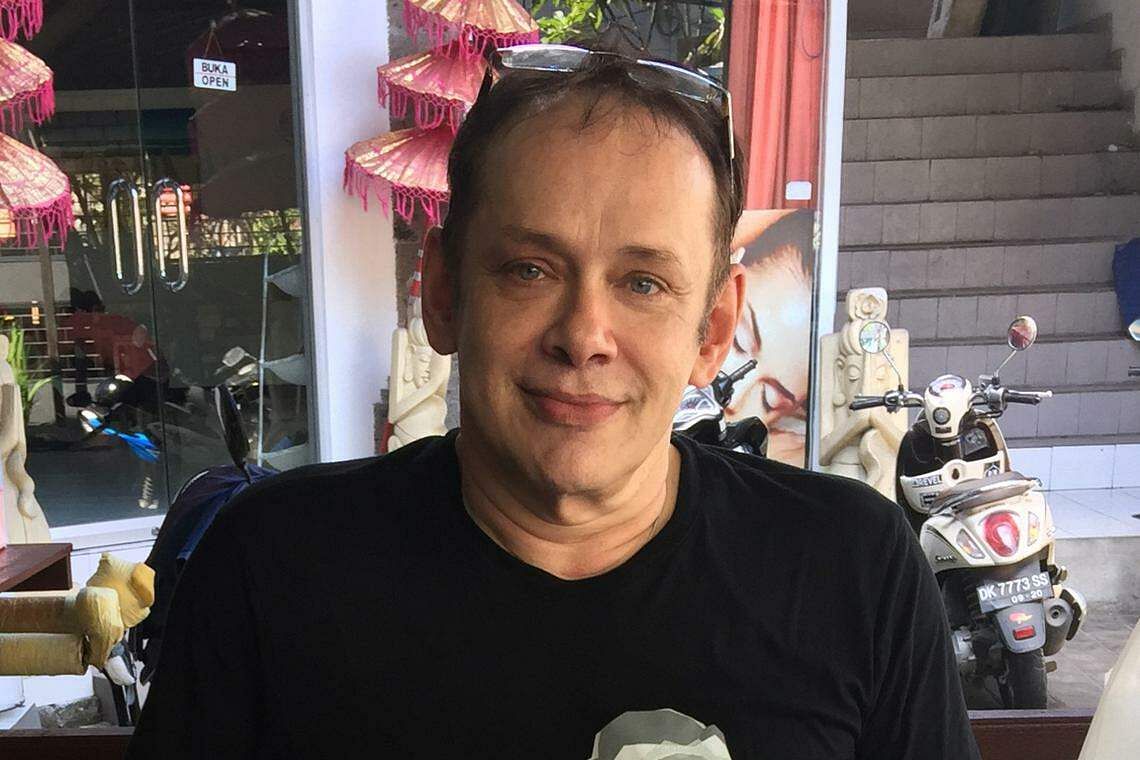S’pore police probed 96 cases of child sex abuse material offences since new laws in 2020
Since new laws were introduced against child sexual abuse material in 2020, the police here have hauled up dozens of people and seized thousands of files containing depraved acts.
One of the worst cases involved a 36-year-old the prosecutors described as having an insatiable appetite for child pornography.
Ansari Abdul Amin, who was jailed for two years in March, had downloaded more than 13,600 files of child abuse material.
The police said they have investigated 96 cases related to child sexual abuse material offences since Jan 1, 2020, when new laws to tackle the issue were introduced.
They did not provide specifics of individual cases, but said the majority of these cases pertained to the possession, access and distribution of child sexual abuse material.
Recent convictions and arrests have thrown the spotlight on the issue.
On March 27, 23 men, aged between 22 and 61, were arrested in an islandwide operation for possessing, distributing and gaining access to child abuse materials, circulating obscene materials and possessing obscene films.
That same week, Sri Lankan Hindakumbure Charindu Dilshan Rajapaksha, 30, was jailed for 18 months for sending 17 clips involving child sexual abuse.
Laws against child sexual abuse material were drafted after a review of the Penal Code found gaps in the law then.
The committee tasked with the review said in 2018: “The current law was not designed for, and is inadequate to address, the serious problems that the rise of the Internet has created for offences such as child pornography.”
In its report, the committee called for new laws to be enforced to cover offences relating to child abuse material in the light of the rapid development of technologies which they said allowed for the fast, widespread and anonymous distribution of exploitative and abusive material.
Dedicated laws were then introduced in the Penal Code with effect from Jan 1, 2020. They criminalise the production, distribution, advertising and possession of child abuse material.
Lawyers The Sunday Times spoke to said that the laws cover the consumption and possession of child sexual abuse material here, even if the material is produced abroad.
Criminal lawyer James Gomez of Edmond Pereira Law Corp said: “You have got to look at the demand and supply. The people who download and access these sorts of videos create the level of demand, which, in turn, makes the perpetrators produce more of the sort of content.
“In doing so, the harm that is caused to the child is usually immeasurable, and it carries on throughout their life.”
The police said that they conduct operations targeting online child sexual exploitation activities and use Interpol’s International Child Sexual Exploitation (ICSE) database. It allows the sharing of data on child sexual abuse cases with law enforcement agencies overseas.
Apart from exchanging information and data with investigators from more than 68 countries, the database also uses image and video comparison software to allow investigators to instantly make connections between victims, abusers and places, said Mr Uri Sadeh, coordinator of Interpol’s Crimes Against Children unit.
The database tells investigators if a series of images has already been discovered or identified in another country, or whether it has similar features to other images.
“By analysing the digital, visual and audio content of photographs and videos, victim identification experts can retrieve clues, identify any overlap in cases and combine their efforts to locate victims of child sexual abuse,” said Mr Sadeh.
He added: “To date, 34,000 victims in the ICSE database have been identified by law enforcement around the world.
“Many more unidentified victims are documented in the database, and global efforts continue to locate and rescue them and bring their abusers to justice.”
An encrypted online trade
Law enforcement agencies, including Interpol, are alert to suspects who download or access child sexual abuse material. Operations to dredge out offenders can involve multiple jurisdictions.
In June 2020, Interpol alerted the Singapore Police Force to a Bangladeshi national in Singapore who had shared child sexual abuse material.
When officers arrested him, they found on his two mobile phones 1,290 obscene videos, including 83 which involved children. He was jailed for six months the same year.
But some are also sharing material on messaging platforms, which makes detection harder.
In Ansari’s case, the court in Singapore heard that he traded child abuse material between 2016 and 2021 by messaging users on Telegram who publicly offered their collection of child pornography.
Such exchanges are a known modus operandi to Interpol, Mr Sadeh said. He added that apps that enforce end-to-end encryption bring additional challenges to the investigations.
He said Interpol’s General Assembly has called on member countries to urge end-to-end encryption providers to take responsibility for designing products and services that are inherently safe for children and ensure they are able to respond to legal requests to provide law enforcement with relevant information.
Mr Thomas Muller, director of network development at Ecpat International, a global network of organisations against the sexual exploitation of children, said that exchanging child sexual abuse material online through encrypted channels is not unique to Singapore.
“Those who are interested in child sexual abuse material can find each other on the Web, and often exchange material through encrypted channels with each other. This is also happening in Singapore and from Singapore,” he said, adding that Singaporean offenders are connected with offenders abroad.
Mr Muller said it also means that images of the sexual abuse of children are getting shared within Singapore and stored on servers located here.
But law enforcement agencies and governments are working to address this gap.
In Singapore, new laws to protect against online criminal harms are expected to be debated in Parliament later in 2023, and they will include powers to stop or remove online communications.
During an earlier debate on amendments to the Broadcasting Act, Minister for Communications and Information and Second Minister for Home Affairs Josephine Teo said: “While we do not intend to police private communications, we are also aware that there are groups with very large memberships, which could be used to propagate egregious content, making them no different from non-private communications.”
She added that the Infocomm Media Development Authority will be empowered to take action against such groups.
Notable child sexual abuse material cases involving Singapore or Singaporeans
Wong Ket Kok

The 54-year-old was jailed in March 2022 for two years and eight months after he was found in possession of 46,946 electronic files containing child sexual abuse material.
Wong, a self-employed renovation contractor, admitted that more than five years prior, he began searching for and downloading child abuse material every day using a file-sharing software called eMule for his own sexual gratification.
A large number of these materials featured pre-pubescent girls, and girls engaging in sexual intercourse. There were also videos that depict girls being subject to sadistic acts.
Boris Kunsevitsky

The 53-year-old Australian, who sexually abused dozens of boys in South-east Asia while he was based in Singapore, was sentenced by a Melbourne court to 35 years’ jail in January 2020.
His offences took place over 15 years in the Philippines, Indonesia, Australia and Singapore, and involved 47 victims.
Five of the victims were in Singapore.
He reportedly moved to Singapore in the early 2000s, and would travel regularly to Indonesia and the Philippines, where most of his victims lived.
One of his earliest crimes was the sexual abuse of a boy at Kunsevitsky’s home in Singapore between September 2002 and August 2003.
Kunsevitsky had sex with the boy, who was aged between 12 and 14 at the time, and took photographs of the sexual acts.
He also photographed the boy in “pornographic posing or activity” on other occasions.
Amos Yee

The Singaporean blogger was sentenced by a United States court in December 2021 to six years in jail after he pleaded guilty to two charges of child pornography and grooming a girl who was 14 at the time.
Yee, then 23, faced 16 other child pornography-related charges, which were dismissed as part of a plea deal he accepted.
He met the victim in February 2019 over the Riot chat app, where they began an “online courtship”, the Chicago court heard. He was 20 years old at the time.
Yee repeatedly asked for her to send him naked photos of herself and asked her to engage in role-play and sexual fantasies, including asking her to show him her body.
He used WhatsApp to seduce, solicit and lure the victim to pose for photographs, which he distributed on WhatsApp.
Yee was previously jailed twice in Singapore for harassment and insulting a religious group in 2015, and for similar charges in 2016. He left for the US in 2016 and was granted asylum in 2017.
His projected parole date is Oct 6, 2023.
Get The New Paper on your phone with the free TNP app. Download from the Apple App Store or Google Play Store now


